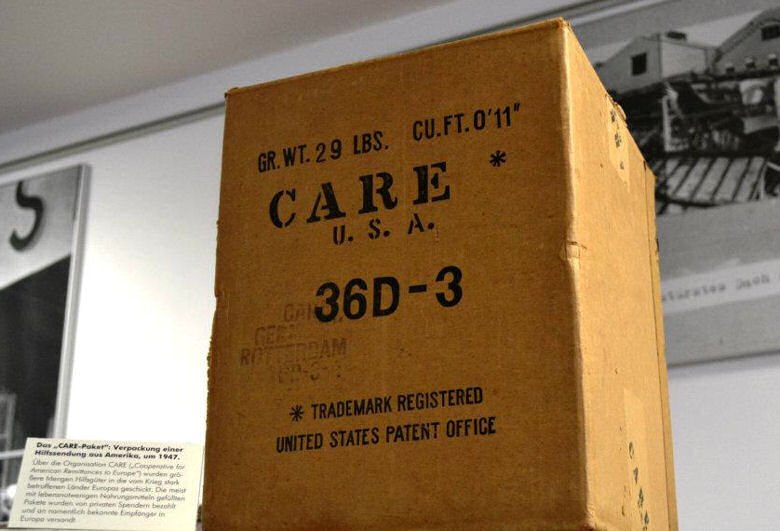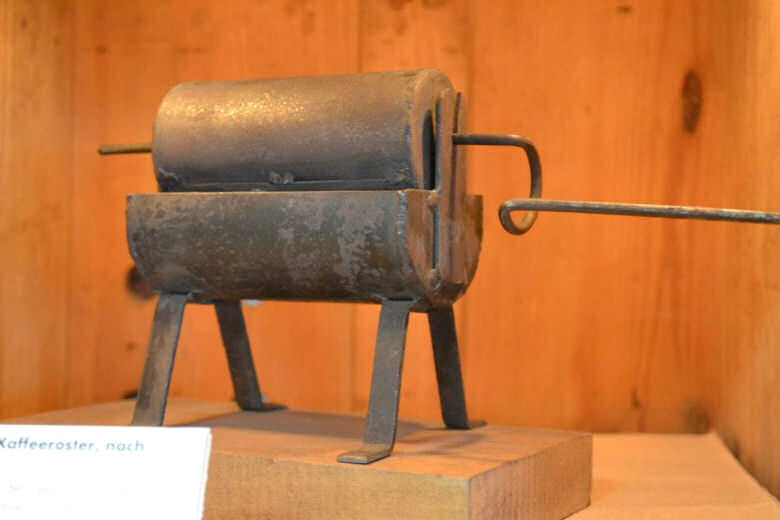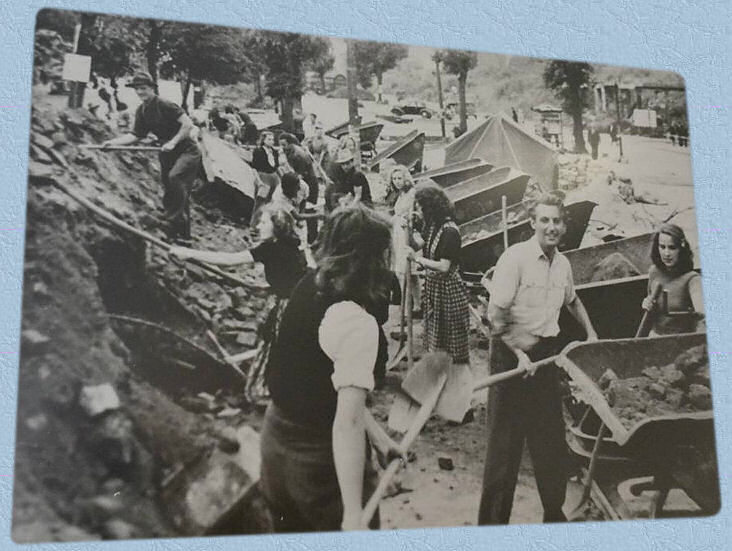


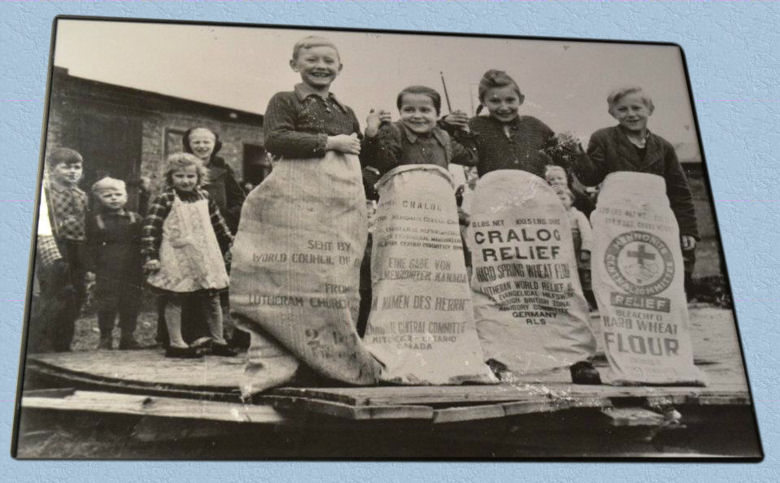
At refugee kindergarten in Lohfelden, around 1947. Children are playing with sacks of different international aid agencies. Apart from the most famous aid agency CARE (Cooperative for American Remittances to Europe), CRALOG (Council of Relief Agencies Licensed to Operate in Germany, since 1946) organized the food supply to Germany.

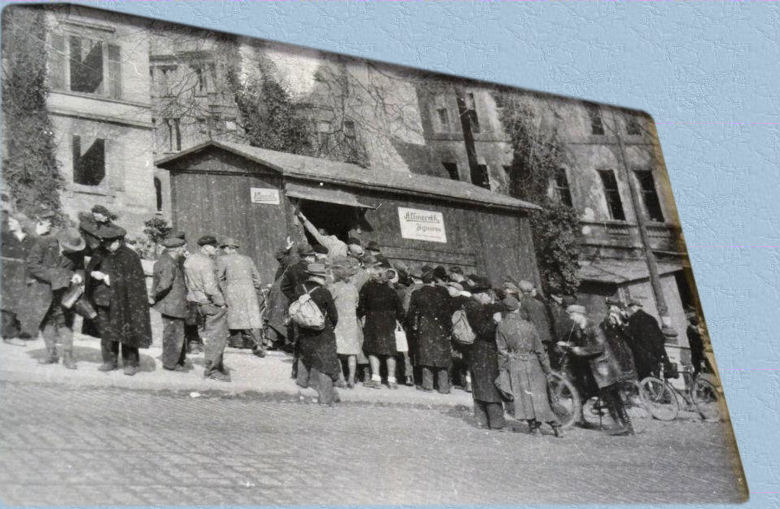
Black market at Brüder-Grimm-Platz

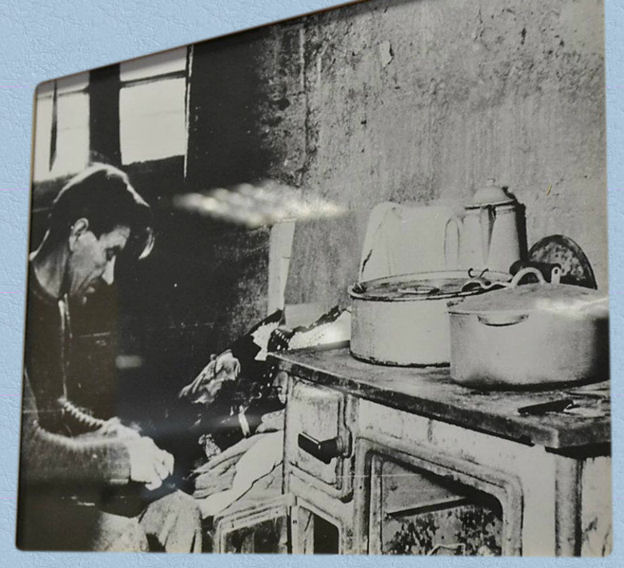
Inhabited ruins cellar at Mattenberg, ~ 1947.

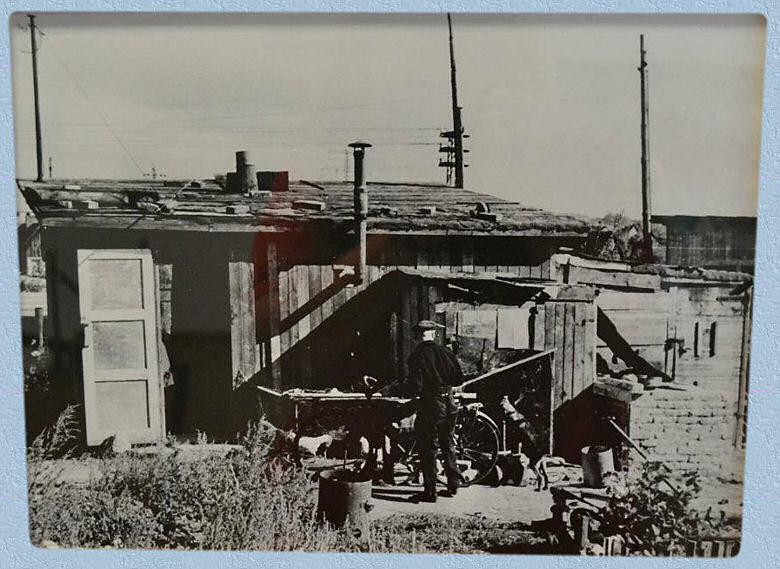
Self-made shack at Umbachsweg 111, district of Bettenhausen, ~ 1947.

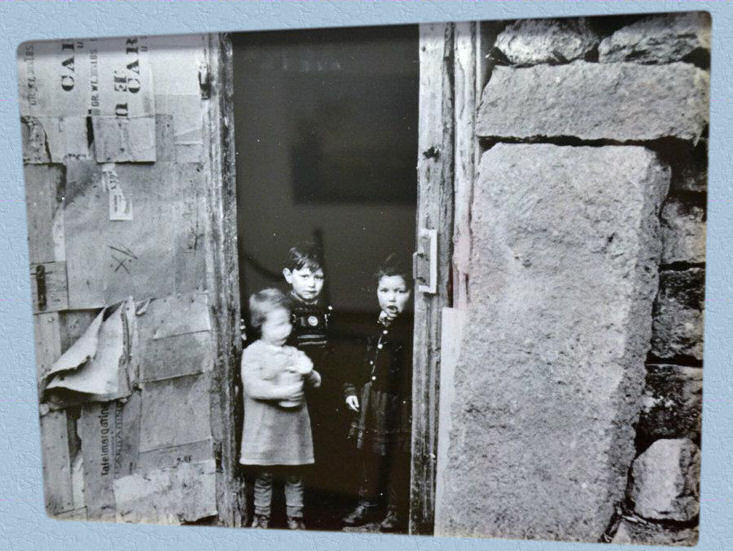
Self-made dugout at quarry Druseltal where a family with three children lived. At the wall you see nailed on CARE packets, ~ 1947.
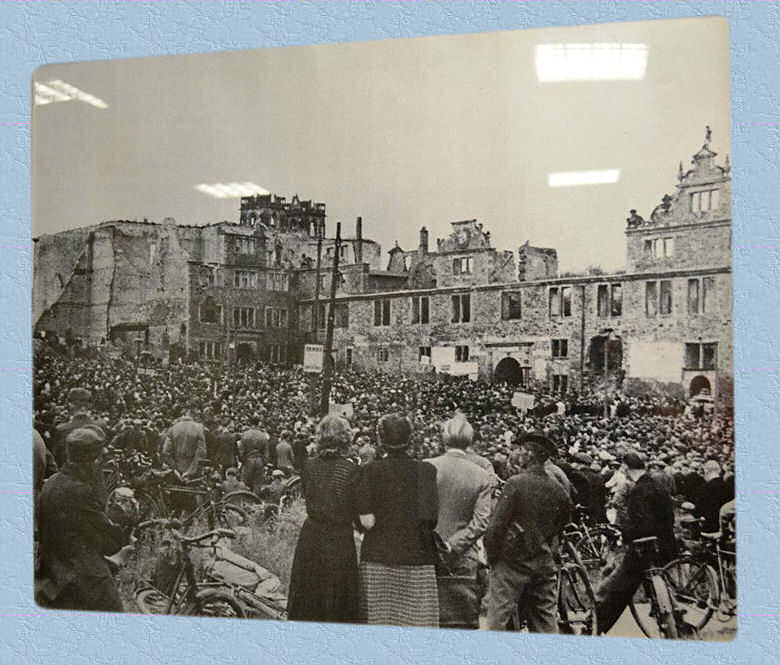
Rally of the unions at Marsteller Platz against profiteering, 1948. After the currency reform and the introduction of the D-Mark in June 1948, step by step a liberalization of economic life started. As part of the wartime economy, wages and prices had been strictly regulated, before. But now, supply and demand ruled. The result of this was that many people couldn't afford the now available goods for everyday life.

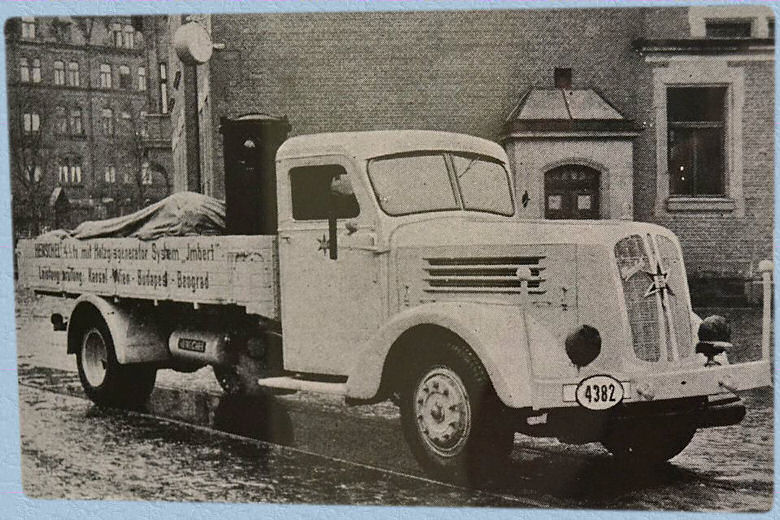
Mobility by wood gas generators. Henschel truck with Imbert-wood gas generator in front of the company's administration building at Holländischer Platz, January 1941. Georg Imbert (1884-1950) had already developed the technique of wood gas generators at the beginning of 1920. Especially during World War II and the years after this technique played an important part due to the lack of gas. Before the war, Henschel had already equipped trucks with wood gas generators. This 4 1/2 ton truck completed a three week test run across Hungary, Jugoslavia and Slovakia in 1941.
